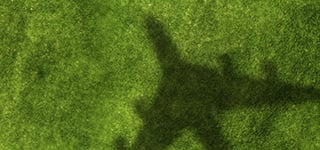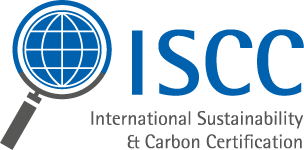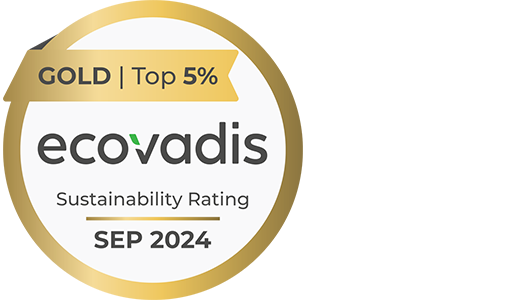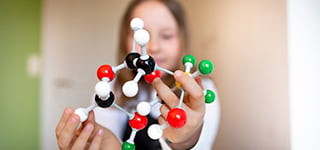The cosmetics industry is increasingly turning to plant-based body care solutions in response to high consumer demand for sustainable products and ingredients.

The cosmetics industry is increasingly turning to plant-based body care solutions in response to high consumer demand for sustainable products and ingredients. The EU is also tightening up on the usage of certain materials with corresponding regulations. Now Haltermann Carless has succeeded in producing the important ingredient, isododecane, on an industrial scale for the first time, offering the industry a 100 % plant-based alternative to critical silicone compounds.
The following Haltermann Carless article has been published in the trade magazine COSSMA June 2022 edition. Click here to access the E-Paper.
Why cyclic silicone compounds are critical
Whilst use of silicones in many cosmetic applications is recently in focus, they have long been considered problematic. The cyclic silicone compounds D4 (octamethylcyclotetrasiloxane) and D5 (decamethylcyclopentasiloxane) are classified as water pollutants and are not easily degradable in nature. They are also bioaccumulative, which means they accumulate in living organisms.
Since 31 January 2020, cyclosiloxanes have been strictly regulated in the EU and may no longer be used in washable cosmetic products above a certain concentration. However, other silicone compounds continue to be used in cosmetics and are mostly known as the ingredient cyclomethicone.
Silicone compounds are used in almost all cosmetic products such as body creams, shampoos and conditioners, but also sun creams, lipsticks or make-up. The reason for this is the important properties that are required by the cosmetics industry and consumers. These include good spreadability, smoothing effect, as well as shine and adhesive effects.
Alternative ingredients are in demand that achieve a similar profile on the skin. These alternatives are available to the cosmetics market with the ingredient isododecane.
Isododecane - what exactly is it?
The renewable isododecane is a strongly branched hydrocarbon from the substance group of alkanes with the molecular formula C12H26. It is a mixture of different isomers of dodecane, usually with the main isomer 2,2,4,6,6-pentamethylheptane accounting for more than 80%. Isododecane is almost insoluble in water, but shows very good solubility or miscibility with many organic solvents such as alcohol, ether, ester and natural formulation components. The strong branching ensures low viscosity, density and relative volatility. As a result, care and beauty products are easy to spread and leave a well-groomed, silky feel on the skin. Properties previously achieved by silicones that are now replaceable.
100% plant-based isododecane for more sustainability
For the first time, it has been made possible to produce renewable isododecane on an industrial scale and with high cosmetic quality. The chemical specialist Haltermann Carless has processed this renewable raw material at its production site in Speyer and is now pursuing a market launch with selected partners in the cosmetics industry.
Equipped with the following properties, Haltermann Carless' renewable isododecane is an important ingredient for sustainable cosmetic and personal care products:
- 100% from plant-based raw materials
- high-purity cosmetic quality
- odourless
- water clear and colourless
Independent laboratories confirm the 100% biological origin of Haltermann Carless' renewable isododecane by means of C14 analyses (radiocarbon methods).
What is the manufacturing process?
To produce the renewable isododecane, the biomass is first converted into highly branched paraffins. This is accomplished with the use of modern process technology via fermentation as well as other chemical processes. In a subsequent step, the mixture of plant-based iso-paraffins is separated into tailor-made fractions and further processed into a renewable isododecane of cosmetic quality through a specific, complex purification process.
Conclusion
As a simple drop-in solution, manufacturers of cosmetics and personal care products can use the renewable isododecane from 100% plant-based resources directly in their cosmetic formulations. The ingredient replaces fossil variants and is an excellent alternative to critical silicone compounds such as cyclosiloxanes. This enables the cosmetics industry to further drive the trend for natural and plant-based personal care solutions and to offer its customers products with safe ingredients.
xxx
The following Haltermann Carless article has been published in the trade magazine COSSMA June 2022 edition. Click here to access the E-Paper or download the article as PDF directly.
About Haltermann Carless
Haltermann Carless is a pioneer and leading international supplier of high-value hydrocarbon solutions in Mobility, Life Science, Industrial and Energy. With access to renewable resources from strategic partners, the company drives the development of sustainable products making a contributing to the reduction of greenhouse gas emissions throughout the supply chain. The company, which is part of HCS Group, employs 500 people and has production sites in Germany, the UK, France and the USA. More information: www.haltermann-carless.com
Your contact:
Sandra Zirm
HCS Group GmbH
Edmund-Rumpler-Str. 3
60549 Frankfurt am Main, Germany
+49 69 695 386-117
pr@h-c-s-group.com


















